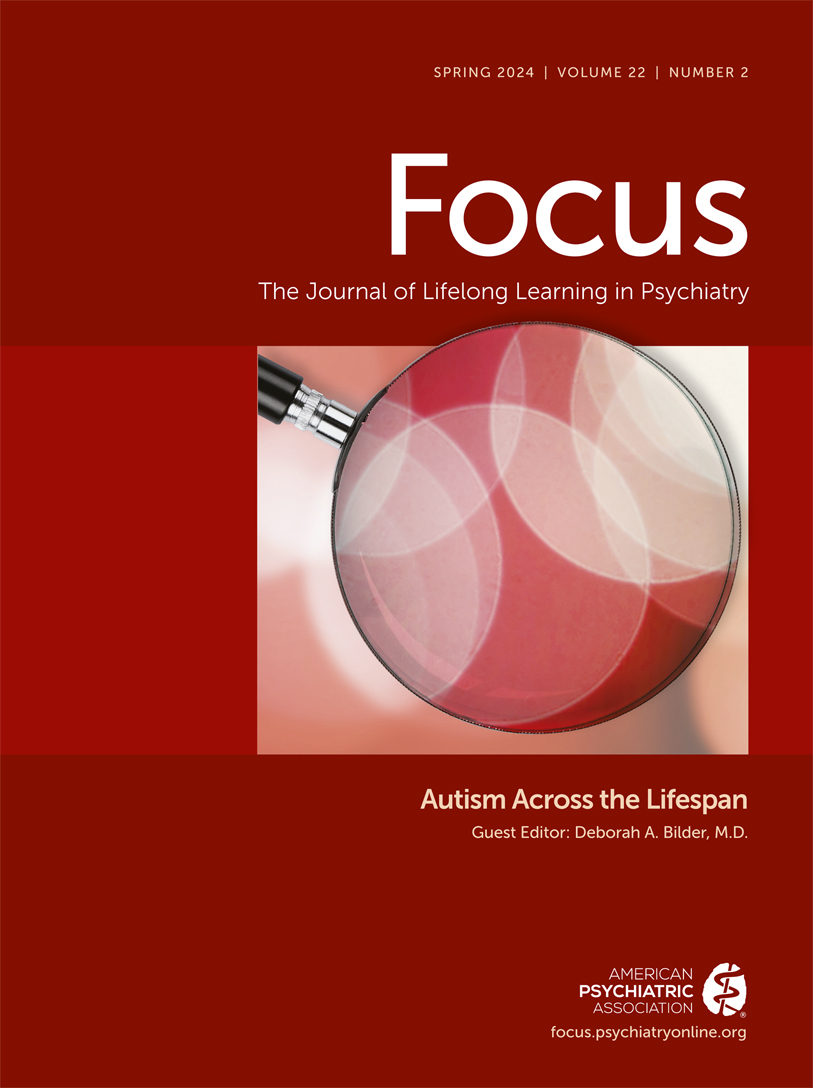Discordance Between Psychiatric Diagnoses and Medication Use in Children and Adults With Autism Presenting in Crisis
Abstract
Autistic individuals experience high rates of behavioral crises that present to healthcare providers for medication management. Co-occurring psychiatric conditions and psychotropic medication use are common among this patient population. Particularly for those with limited expressive language, evaluating for the presence of psychiatric and medical conditions that could contribute to distress is a critical component of crisis management. A records review study was completed on 126 autistic individuals for whom medical decision-making support was requested from The Huntsman Mental Health Institute Neurobehavior Consultation Service. Crisis manifestations and historical information were provided by the parent or caregiver through an online questionnaire. Nearly all individuals presented with behavioral (96.8%) and emotional (96.8%) symptoms; 97.6% received at least one co-occurring psychiatric diagnosis. Additionally, 75.4% of parents or caregivers endorsed the presence of a medical condition that they believed could be contributing to the crisis presentation. Most individuals (92.1%) were prescribed at least one psychotropic medication; 69.8% were taking an antipsychotic, suggesting a history of treatment resistance. The alignment between psychotropic medications and psychiatric diagnoses was evaluated in the context of prior studies and reviews on psychiatric management in autistic and neurotypical populations. Several individuals were taking a combination of medications that included both indicated and contraindicated medications for the psychiatric disorder diagnosed, likely contributing to treatment resistance. Identifying discordance between psychotropic medication use and psychiatric conditions present offers an opportunity to pursue better treatment outcomes for autistic individuals, particularly for those experiencing treatment-resistant agitation.
Access content
To read the fulltext, please use one of the options below to sign in or purchase access.- Personal login
- Institutional Login
- Sign in via OpenAthens
- Register for access
-
Please login/register if you wish to pair your device and check access availability.
Not a subscriber?
PsychiatryOnline subscription options offer access to the DSM-5 library, books, journals, CME, and patient resources. This all-in-one virtual library provides psychiatrists and mental health professionals with key resources for diagnosis, treatment, research, and professional development.
Need more help? PsychiatryOnline Customer Service may be reached by emailing [email protected] or by calling 800-368-5777 (in the U.S.) or 703-907-7322 (outside the U.S.).



